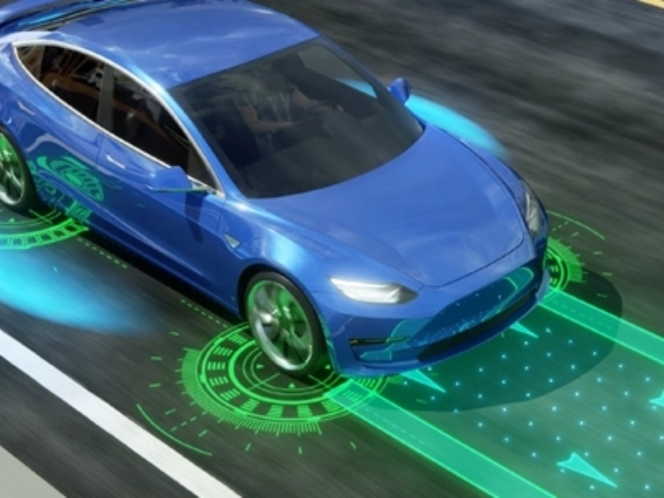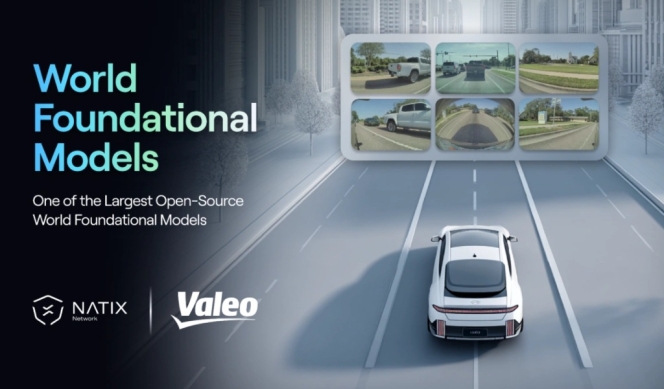Ather Energy Expands Charging Network in Tamil Nadu, Reaching 400 Fast Chargers
- By MT Bureau
- August 12, 2025
Bengaluru-headquartered electric vehicle major Ather Energy has announced that its fast-charging network ‘Ather Grid’ has surpassed 400 charging points across Tamil Nadu. This expansion aims to alleviate range anxiety for EV owners and support the growing adoption of electric vehicles in the state.
With charging stations now in 38 cities, including tourist destinations like Coonoor and Rameswaram, the network connects key travel routes such as Coimbatore to Bengaluru and Chennai to Pondicherry. The company also noted that a total of 480 fast charging points are available in the state, which includes over 50 LECCS (Light Electric Combined Charging System) chargers. Developed by Ather, the LECCS standard allows different brands of light EVs to use the same charging network.
Ravneet Singh Phokela, Chief Business Officer, Ather Energy, said, “Tamil Nadu has been one of our earliest markets and ever since we entered the state in 2019, we have been investing in building a reliable charging network there. Charging has often been seen as one of the key barriers, and it’s something we’ve focused on solving from day one. Crossing 400 fast chargers in Tamil Nadu is a reflection of that commitment. It’s about giving riders the confidence that a charger is never too far away. As our retail footprint grows, the charging network will continue to scale alongside it, making EV ownership truly seamless.”
The company has partnered with local businesses like Coffee Day Global and Ganga Sweets to deploy these charging points. This expansion is part of Ather's broader national effort, which has seen the establishment of over 3,300 fast-charging points across India. The chargers can provide up to 15 kilometres of range in just 10 minutes, making it more convenient for riders on the go.
In addition to its charging infrastructure, Ather maintains a strong presence in the state with 44 experience centres and 42 service centres in 35 cities, offering comprehensive sales and after-sales support.
LTTS Secures Multi-Year Deal From Automotive OEM For Engineering And R&D
- By MT Bureau
- January 28, 2026

Bengaluru-headquartered ER&D company L&T Technology Services (LTTS) has announced a multi-year engagement within its mobility segment from an automotive manufacturer. The agreement involves software, connectivity and digital engineering services across vehicle technology domains. This win follows the company’s investments in R&D labs and mobility infrastructure designed for programs with global manufacturers.
The engagement covers mobility engineering capabilities, including embedded systems, digital platforms, verification and validation, cloud integration and cybersecurity. LTTS intends to use its engineering expertise and delivery frameworks to support the customer's technology roadmap.
At present, LTTS operates 22 design centres and 100 innovation labs globally.
The agreement strengthens the partnership between LTTS and the automotive manufacturer in the area of mobility engineering. The company provides design, development, and testing services across the mobility, sustainability, and tech segments.
Alind Saxena, Executive Director and President, Mobility and Tech at L&T Technology Services, said, “We are proud to deepen our partnership with the valued customer through this strategic engagement. LTTS brings together domain-led engineering, secure development practices and excellence in global delivery to accelerate the future of premium mobility. The win reflects the trust placed in our teams and our commitment to delivering world-class engineering at scale”.
Valeo And NATIX Network Partner To Develop Open-Source World Foundation Model
- By MT Bureau
- January 25, 2026

French technology company Valeo and NATIX Network have announced a partnership to develop a multi-camera World Foundation Model (WFM). The project combines Valeo’s research in artificial intelligence and generative modelling with NATIX’s decentralised physical infrastructure network (DePIN) to create an open-source platform for autonomous driving and robotics.
The initiative aims to move beyond perception-based models by creating a system capable of predicting future states and reasoning about physical interactions in a four-dimensional environment. The model will be trained using NATIX’s data network, which has collected 600,000 hours of video data across the US, Europe and Asia over seven months. This data provides the multi-camera inputs necessary for the spatial perception required by autonomous vehicles and robots.
The partnership builds upon Valeo’s existing open-source frameworks, VaViM (Video Autoregressive Model) and VaVAM (Video-Action Model). While these frameworks were previously trained primarily on front-camera datasets, the integration of NATIX’s multi-camera network expands the AI’s field of vision to 360 degrees.
Under the open-source framework, the partners will release models, datasets and training tools. This approach is intended to allow the research community to fine-tune models and benchmark physical AI across various driving conditions and geographic regions. The collaboration seeks to accelerate the deployment of end-to-end AI models by learning from real-world edge cases captured by vehicles in operation.
Marc Vrecko, Chief Executive Officer, Valeo’s Brain Division, said, “Since our creation in 2018, Valeo’s AI research center has been at the forefront of AI research in the automotive industry, especially in the fields of assisted and autonomous driving. Our goal has always been to advance mobility intelligence safely and responsibly. By combining Valeo’s generative world modeling research expertise with NATIX’s global multi-camera data, we are accelerating both the quality and the accessibility of next-generation end-to-end AI models, enabling the research community to build upon strong open models.”
Alireza Ghods, CEO and Co-Founder, NATIX, added, “WFMs are a once-in-a-generation opportunity — similar to the rise of LLMs in 2017–2020. The teams that build the first scalable world models will define the foundation of the next AI wave: Physical AIs. With our distributed multi-camera network, NATIX has a clear advantage of being able to move faster than large OEMs.”
- Tata Technologies
- Amazon Web Services
- InnoVent 2026
- Jaguar Land Rover
- Air India
- ES-Tec Group
- Warren Harris
Tata Technologies Concludes InnoVent 2026 Engineering Hackathon
- By MT Bureau
- January 23, 2026

Tata Technologies has announced the completion of the 3rd edition of its innovation hackathon, InnoVent 2026, supported by Amazon Web Services (AWS). The initiative invited engineering students to develop solutions for mobility challenges in the automotive and manufacturing sectors. The programme received participation from 10,247 students across 404 colleges in India, resulting in 2,822 projects.
The competition focused on the theme of intelligence-driven mobility for the year 2030. Participants received over 650 hours of mentoring and training from subject matter experts to convert their concepts into prototypes. The top 10 teams presented their work at the company's Hinjewadi campus in Pune before a jury of industry leaders from Jaguar Land Rover, Air India and ES-Tec Group.
Team Drushti from CMR College of Engineering & Technology, Hyderabad, secured the first prize of INR 300,000 for a system that customises vehicle infotainment for visually impaired drivers. Second place went to Team The T-Factor from Vellore Institute of Technology, Chennai, for an AI-based breakdown prevention system. Team SwarmSync from the International Institute of Information Technology (I²IT), Pune, took third place for an intelligent fleet management solution using V2X communication.
Tata Technologies offered career opportunities to all 42 finalists involved in the top projects. Furthermore, all participants were granted one-year access to the iGETIT learning platform to study emerging technologies. The finalist projects covered areas such as blockchain for vehicle security, wireless charging for electric vehicles, and AI-led battery monitoring.
The event featured a humanoid robot that performed roles such as coordinating panel discussions and interacting with attendees. A panel of industry experts discussed the global demand for engineering talent and the impact of technology on future mobility.
Warren Harris, MD & CEO, Tata Technologies, said, "InnoVent at Tata Technologies represents our conviction that the future is shaped by those who combine engineering excellence with human purpose to engineer a better world".
Kia India Reintroduces Driver Behaviour Monitoring Tech
- By MT Bureau
- January 23, 2026

Kia India has announced the re-launch of its Kia Inspiring Drive (K.I.D) Program, debuting alongside the New Kia Seltos. The initiative is a driving score system designed to monitor real-time behaviour and provide insights into habits. Accessed via the Kia Connect app, the programme will be rolled out across the company’s connected vehicle portfolio in phases.
The K.I.D score is calculated using a three-month rolling average based on parameters including rapid acceleration, rapid deceleration and sudden starts. To ensure data accuracy, the system applies a weighted value based on the specific vehicle. This methodology aims to reflect long-term driving patterns rather than isolated incidents.
The programme incorporates community-based leaderboards, allowing owners to compare scores and track their standing within the Kia community. By turning road safety into an interactive experience, the manufacturer intends to encourage responsible driving through recognition and competition.
The behaviour-based scoring system provides data to help users understand the impact of their habits on road safety. Kia is supporting the re-launch with a digital and press campaign to increase awareness among its customer base.
Atul Sood, Senior Vice-President – Marketing & Sales, Kia India, said, “Safety remains at the core of Kia’s philosophy, and with the re-launch of the Kia Inspiring Drive program alongside the New Seltos, we are taking another meaningful step towards encouraging responsible driving behaviour. By offering customers clear, data-driven insights into their driving patterns, the KID program empowers them to make safer choices on the road, while also enhancing their overall ownership experience.”







Comments (0)
ADD COMMENT